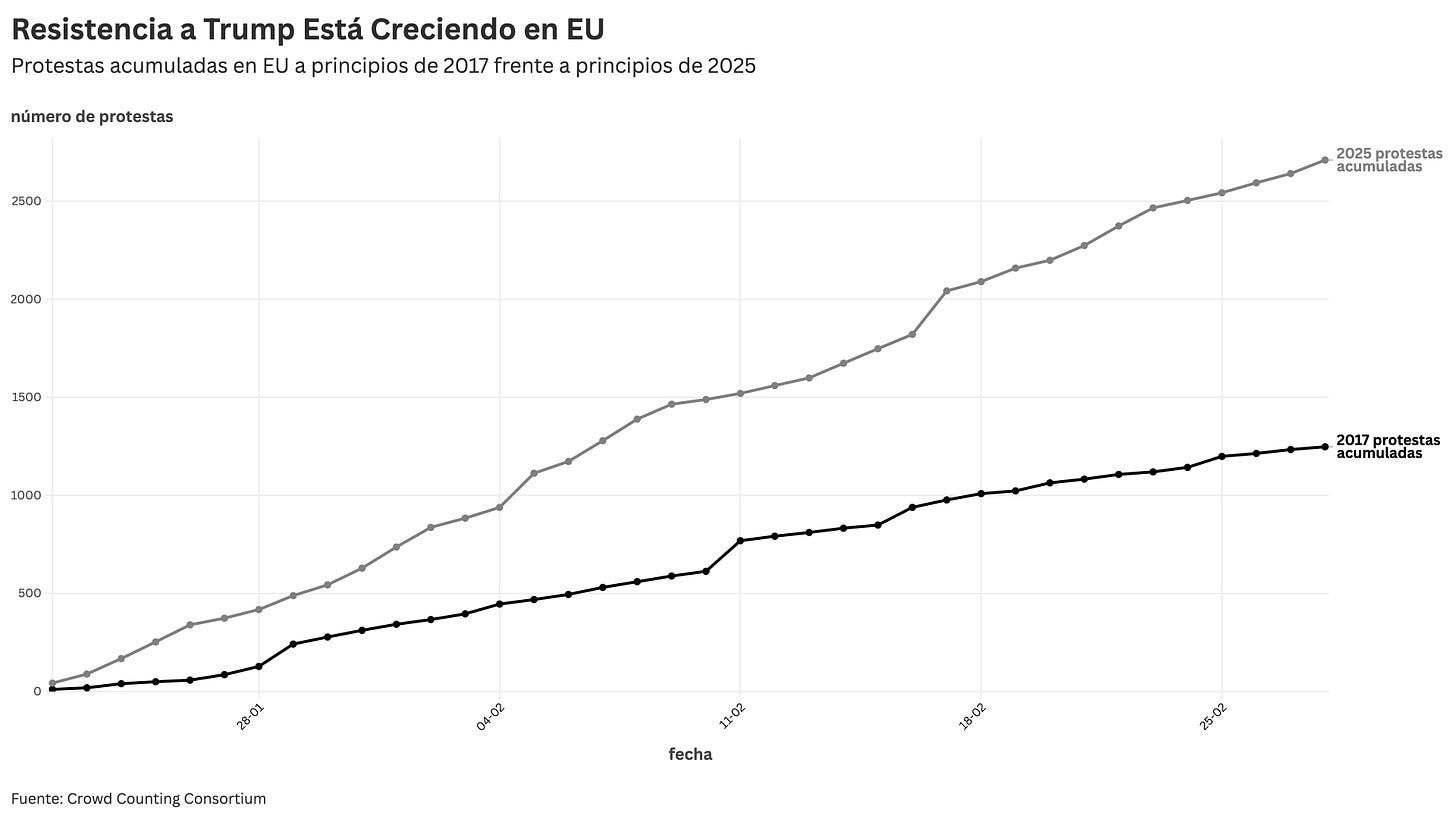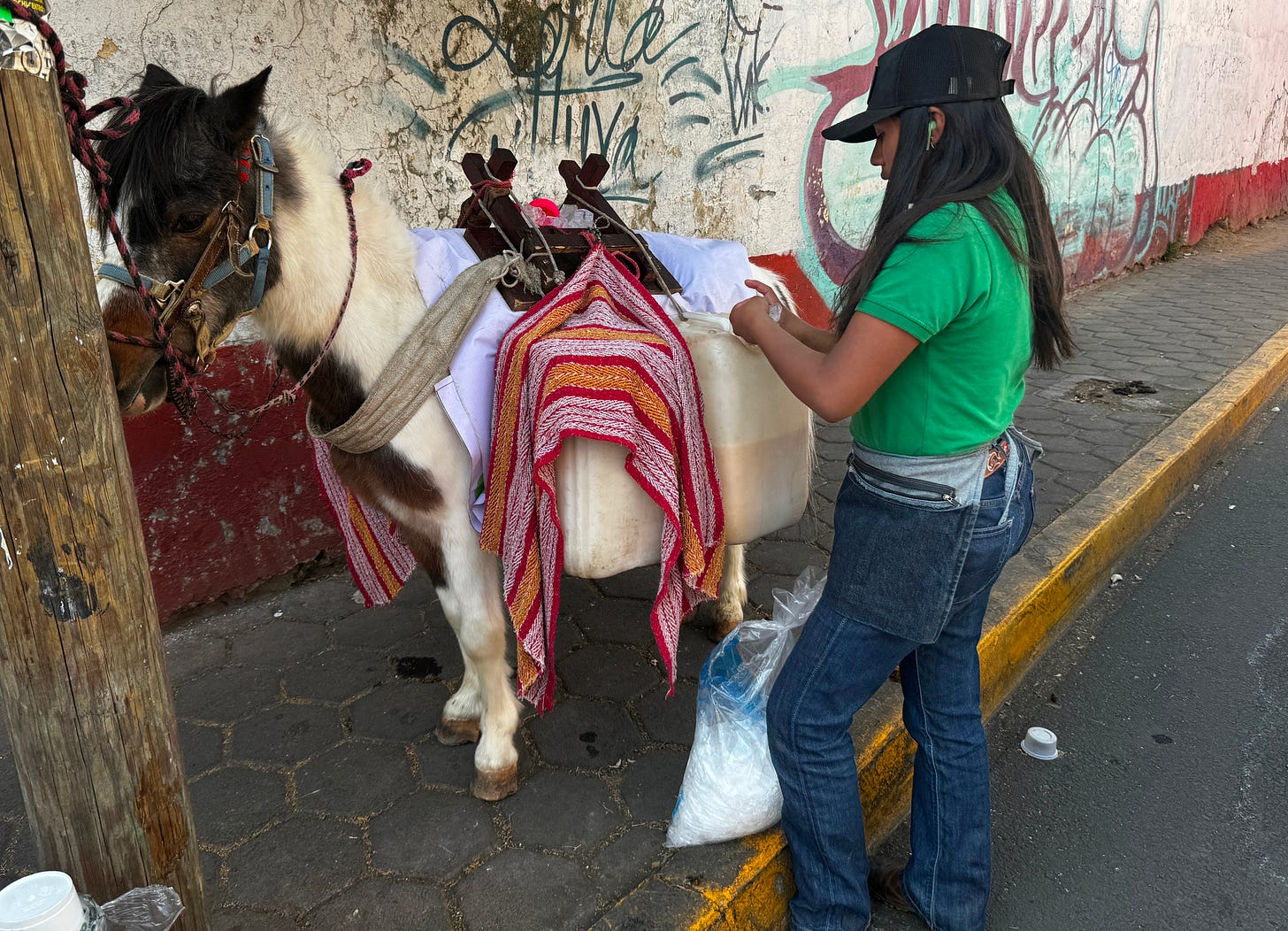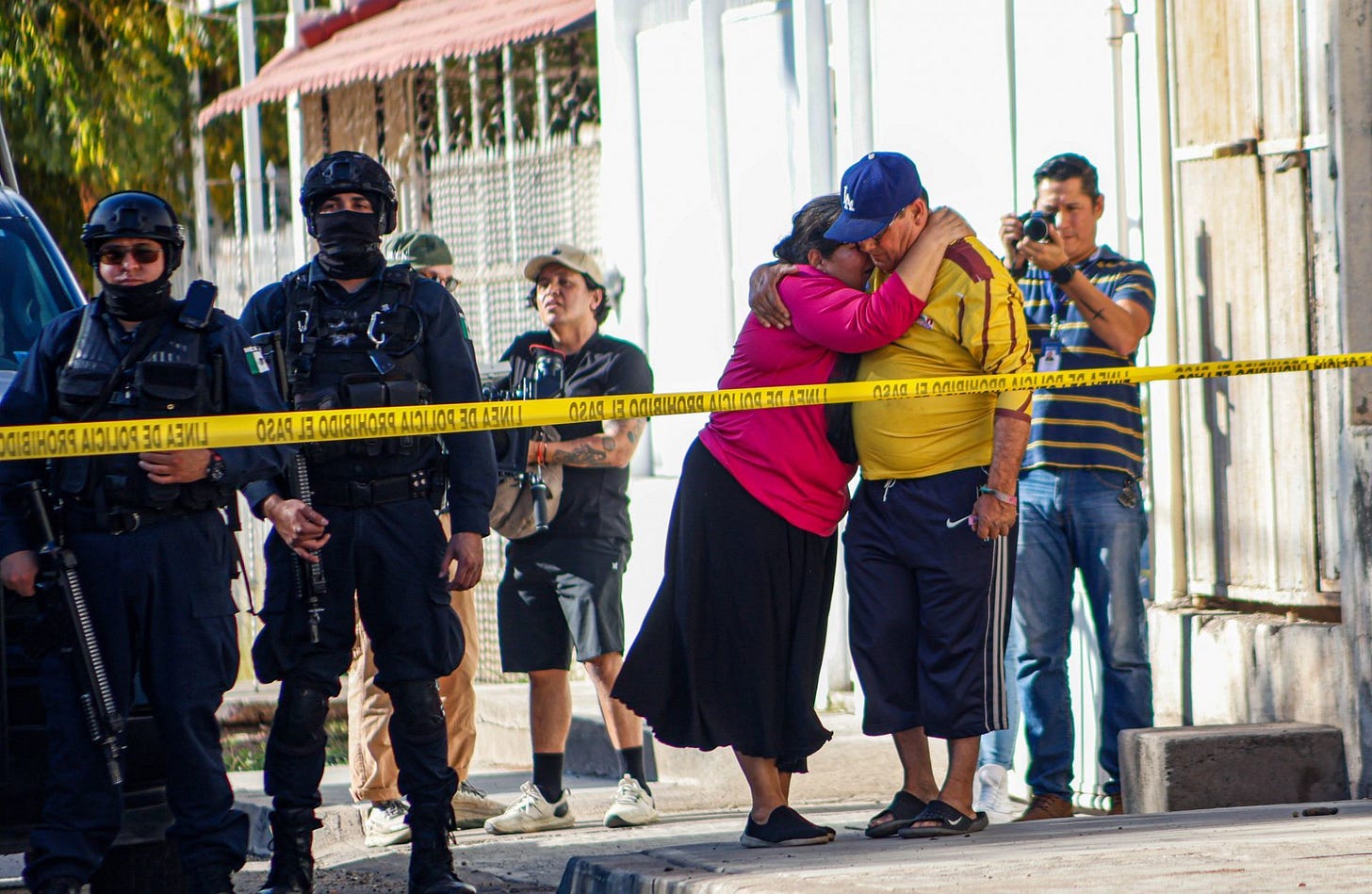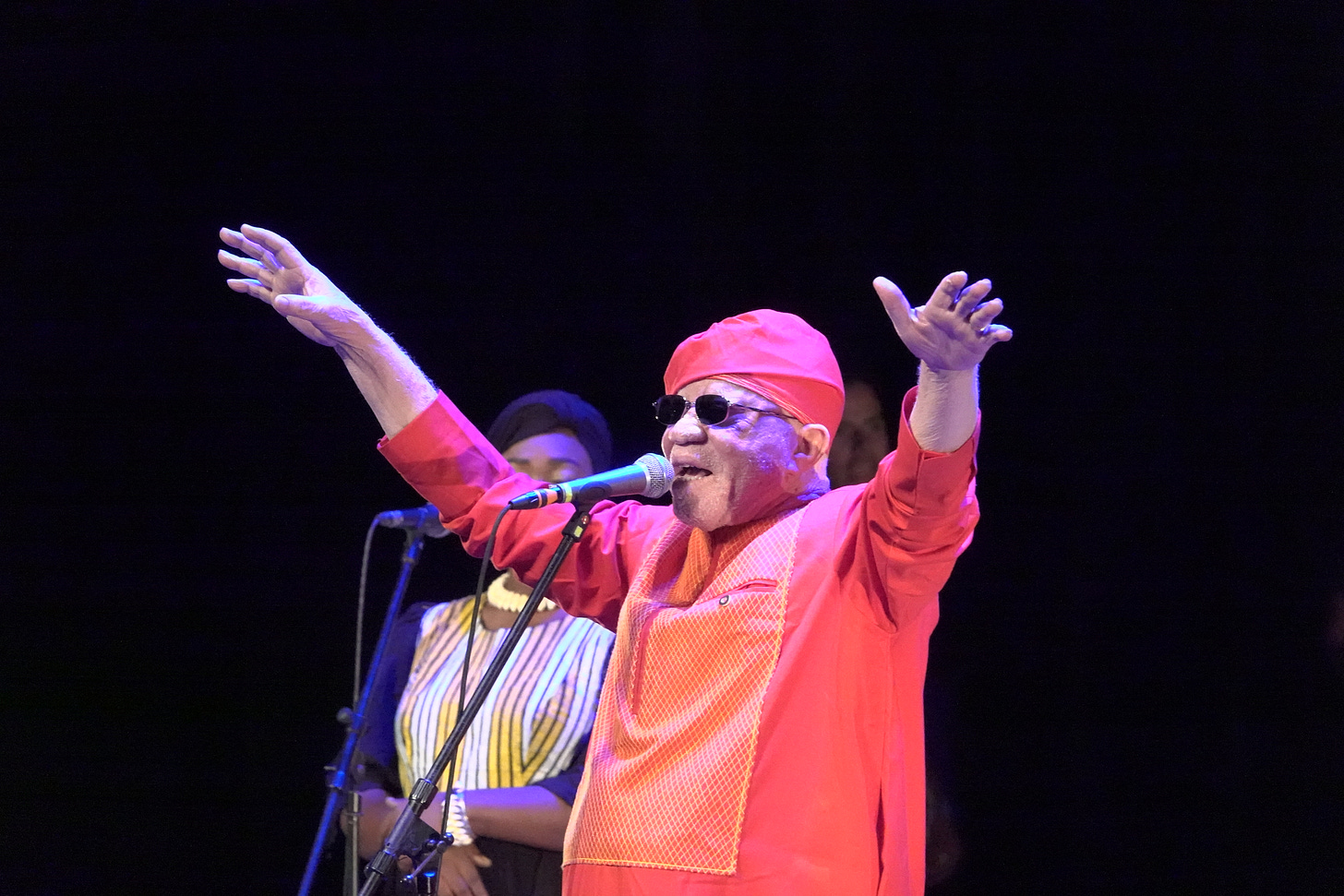04 Apr 25 | Resistance against Trump in the US
Also in this edition: Pulque, the nectar of the gods. Chronicles of the drug war in Sinaloa. Spain: more than 1,200 minors awaiting asylum. Three decades of Panteón Rococó. Salif Keita in Mexico.
Lea La Jornada Internacional en español aquí.
“Fight like Hell” against Trump: protesters
A growing wave of protests and resistance to Donald Trump's right-wing agenda is spreading across all 50 US states, the capital, and territories such as Puerto Rico, with plans for demonstrations throughout the nation on April 5th and May 1st.
Immigrants, who were among the first to take to the street to repudiate Trump's policies, are now being joined by students and academics, local and state politicians—and a few national ones— librarians, civil rights advocates, unions, some members of the feminist and LGBTI+ movements, artists and cultural workers, and even scientists.
During Trump's first 40 days in the White House, 2,710 protests were logged by the Harvard Crowd Counting Consortium, an average of 67 a day, more than double the number that occurred during the first 40 days of Trump's first term. That number of protests increases daily, with actions including marches, rallies and acts of civil disobedience. For example, occupations and graffiti at Tesla dealerships are multiplying, as protesters target the car company owned by Elon Musk, Trump's business partner and the richest man on the planet.
When Trump announced he would abolish unions and collective bargaining agreements across a large portion of the federal government, all the major unions in both the private and public sectors responded, and some are now planning a massive protest on May 1st. “Fight like hell,” postal workers chanted at hundreds of protests, while thousands more demanded: “Hands off” our healthcare, government jobs, science education, students, and more.
Resistance to the attacks on cultural institutions and organizations is coming from artists of all kinds, from famous actors like Jane Fonda, Susan Sarandon, and Mark Ruffalo, to poets, playwrights like Lin Manuel Miranda, filmmakers like Michael Moore, musicians like Patti Smith, and hundreds more who have spoken out against the right-wing assault on the arts.
In the face of the assault on the federal bureaucracy, on assistance programs for the poor, schools, public health, and on those who dare to protest, the leadership of the opposition Democratic party has been notable for its silence and subservience. However, some national political leaders, such as Democratic socialist Senator Bernie Sanders, Democratic Representative Alexandria Ocasio-Cortez, and Mexican-American Representative Greg Casar, are building an "anti-oligarchy" movement.
There are also expressions of resistance from unexpected places, such as park rangers in major national parks, war veterans, and federal workers.
As the wave of condemnation spreads, the question remains, how could this generate a movement of resistance and opposition capable of halting, and then reversing the right-wing offensive led by Trump? “The diversification of resistance methods puts the United States on a similar trajectory to many democracy movements of the past”, argues Erica Chenoweth, a political scientist at Harvard University.
At the same time, condemnation of the US right-wing agenda and its international policies are also multiplying in other countries, from Europe to Greenland, from Africa to Latin America, to Mexico.
If you go to a protest, please tell us about it! Send a photo with a paragraph of information to this email, and we will try to publish a selection in the next newsletter: lajornadainternacional@substack.com
The Quote
“This is it, and it’s not a rehearsal… We must not isolate, we must stay in community, we must help the vulnerable, we must find ways to project an inspiring vision of the future, one that is beckoning, welcoming.”
– Jane Fonda at the Screen Actors Guild Awards
In case you missed it
◻️ The nectar of the gods. Since ancient times, pulque has been more than a drink; it is the fruit of collective labor, inherited knowledge, and the sacred relationship between the maguey and those who care for it. The places where it is sold have long been refuges of popular culture, history and resistance.
◻️ Under siege: children alone, leaders arrested, pro-Trumpians surprised. The Spanish government has so far failed to respond adequately to the 1,200 unaccompanied minors seeking asylum, who are today living in poor conditions in shelters in the Canary Islands. Meanwhile, in the U.S, the violent arrest of an immigrant leader in Washington State is just one of many actions documented by the newspaper. And Cuban immigrants in Florida are surprised that, for the first time in more than 60 years, they are being treated like everyone else, writes Rosa Miriam Elizalde.
◻️ Chronicles of the drug war in Sinaloa. Can Culiacán return to "normal"? Musicians, who once waited for their clients at specific spots throughout the city, have moved into the intersections. From time to time, municipal or state authorities talk about banning memorial shrines because they reflect poorly on the city. Arturo Cano reports that the promise of restoring normalcy comes dressed in green and black—the colors of the army.
◻️ Your neighborhood in Mexico City: Azcapotzalco. Long before the Mexicas took control of the Valley of Mexico, the central neighborhood of Azcapotzalco was already a meeting point for the Chintololos, as its inhabitants are known. The profile of this former neighborhood is part of the Tu Colonia series.
◻️ New US embassy in Mexico. The eerie ceiling of the vast entrance hall is reminiscent of the opening credits of Star Wars, writes Hermann Bellinghausen, about a bunker surrounded by military camps and... Chinese, in the neighborhood where he grew up.
◻️ Salif Keita created a collective dance in Mexico City. The audience roared with joy as the Malian musician took the stage after a 10-year absence. He delighted attendees with his fusion of traditional African rhythms with jazz, blues, contemporary music, and his powerful voice, which has captivated the world.
◻️ Three decades of Mexican rock from Panteón Rococó. "We've not only planted the seed of being wild and playing music, but also the seed of social consciousness," said guitarist Gorri. ▶️ VIDEO: La Carencia live
🎥 What we are watching
Bassem Youssef and Medhi Hasan on college students, free speeech and Gaza.
Did you receive this email from another reader?
Sign up here to receive La Jornada Internacional in your inbox. It’s free.









